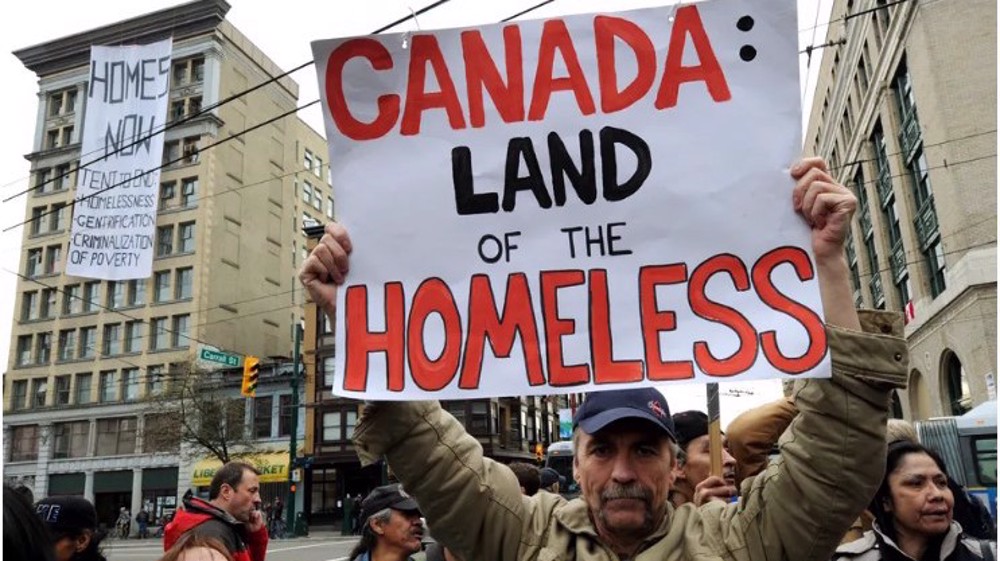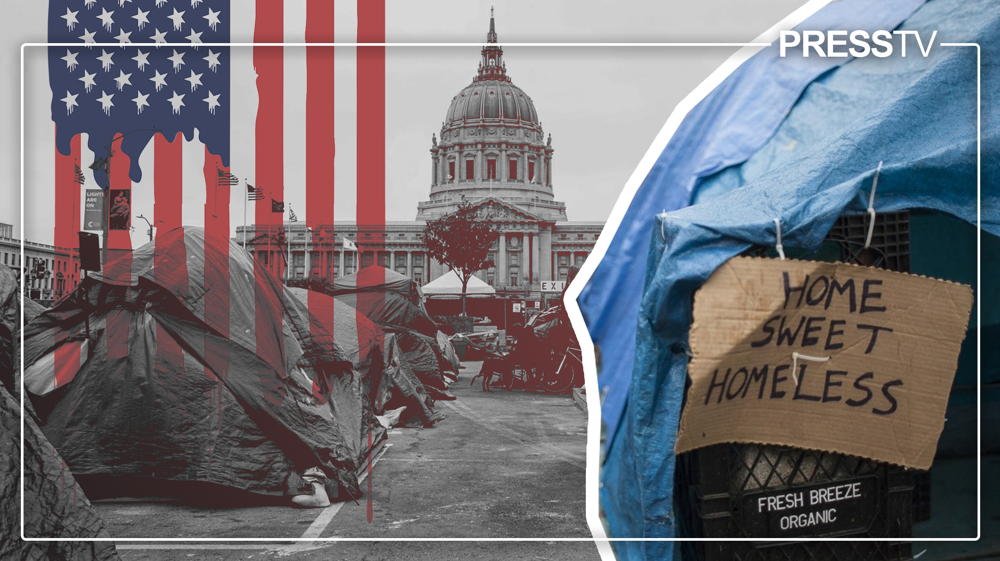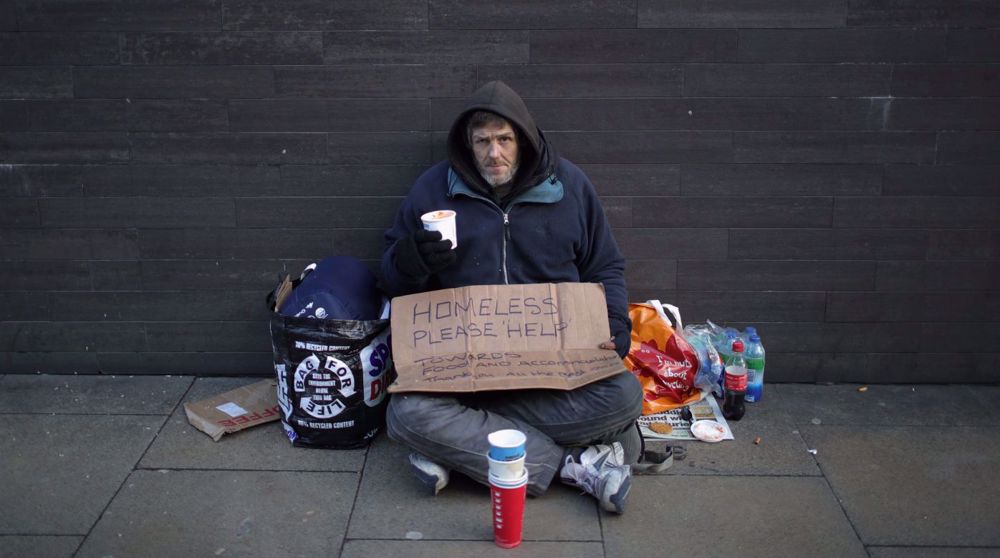‘A perfect storm’: Canada facing growing homeless crisis
Canada is grappling with a growing homelessness crisis, forcing an increasing number of people into life on the streets, shelters, or substandard living conditions.
A recent report by Quebec's public health institute (INSPQ), commissioned by the Ministry of Health and Social Services, reveals a 44 percent surge in homelessness in Quebec compared to 2018.
In a 2016 State of Homelessness report, Canada was reported to have at least 235,000 homeless individuals. The Homeless Hub, a national research institute, estimated the annual figure for homelessness in Canada to fluctuate between 150,000 and 300,000 people.
However, researchers caution that official government data significantly underestimates the true extent of homelessness nationwide.The alarming surge could signify a deepening crisis that is no longer confined to major cities but is spreading to smaller towns.
However, it is also difficult to estimate the exact number of homeless people as many are hidden homeless. That means they temporarily live in squats or stay with friends and family. It is estimated that around 1.3 million Canadians have experienced insecure housing or homelessness.
“We are largely underestimating the number... we could probably triple the current federal estimates,” said Cheryl Forchuk, professor of University of Western Ontario.
In 2018, Quebec conducted its first province-wide survey on homelessness, identifying a total of 5,789 individuals who were "visibly" homeless. However, by 2022, this number had surged to 10,000.
In Quebec, one in two homeless people can be found in rural parts of the eastern province, rather than in Montreal as had been the case in the past, according to the report.
“Visible homelessness did not exist three years ago in Granby,” city’s mayor Julie Bourdon told media, admitting that “rents are very high now compared to two years ago.”
According to the new statistics, people who come from the Indigenous community are at a disproportionate risk of becoming homeless. In Canada, while 4.3% of the population is Indigenous People, over 30% of people who do not have a permanent home identify as Indigenous.
“Indigenous people, who represent five percent of the Canadian population, are particularly over-represented in the streets, especially the Inuit,” said Karine Lussier, director of a local anti-poverty organization.
Quebec, the second most populous province in Canada, is facing a serious housing shortage because of factors ranging from the pandemic to record immigration driving population numbers higher, and increasing demand.
Quebec leader Francois Legault described the homeless crisis as the “perfect storm.”
“10,000. This is the number of people experiencing homelessness on the streets of Quebec. This is unacceptable for a prosperous and empathetic society like ours,” he recently declared.
“We now find ourselves in a situation where even well-off people have difficulty with housing,” Prime Minister Justin Trudeau conceded in September.
With the rising cost of living and galloping inflation in 2023, experts fear that Canada faces an alarming and growing homeless crisis that demands urgent attention and comprehensive solutions.
Factors such as rising housing costs, economic disparities, and the ongoing COVID-19 pandemic have exacerbated the homeless crisis in Canada.
Families, veterans, youth, and vulnerable populations are disproportionately impacted, with many forced to live on the streets, in shelters, or in substandard housing conditions.
This crisis has far-reaching consequences, including compromised public health, increased crime rates, and strained social services.
VIDEO | Canadians preparing to hold more rallies in solidarity with Venezuela
VIDEO | Iranian national Mahdieh Esfandiari goes on trial for supporting Palestine
VIDEO | Italian farmers launch protest campaign against EU-Mercosur free trade deal
VIDEO | Trump’s Gaza ‘Board of Peace’ invitation sparks criticism in Pakistan
VIDEO | Iran, Iraq vow to deepen ties, hail US exit
Araghchi slams World Economic Forum for canceling his invitation
Iran condemns Argentina’s unfounded accusations against IRGC
VIDEO | Fighting British state















 This makes it easy to access the Press TV website
This makes it easy to access the Press TV website